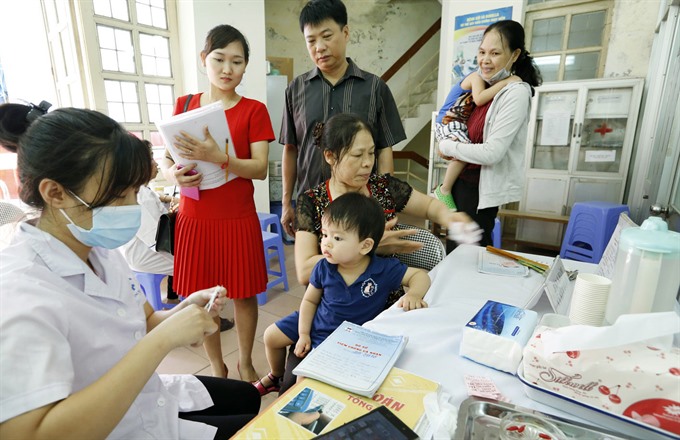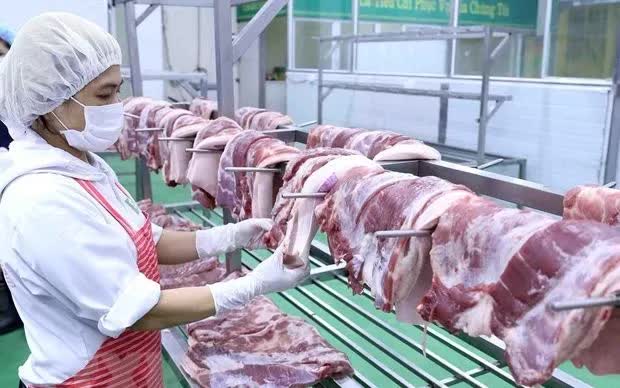 Society
Society

Việt Nam lacks long-term nutrition research that could provide a scientific foundation for nutrition consultancy, doctors and nutritionist have said.
 |
| Children receive vitamin A at the Thanh Nhàn medical centre in Ha Noi’s Hai Bà Trưng District. — VNA/VNS Photo Dương Ngọc |
HÀ NỘI — Việt Nam lacks long-term nutrition research that could provide a scientific foundation for nutrition consultancy, doctors and nutritionist have said.
Nutrition consultancy has not experienced a boom here as it has in the US or Australia, according to nutritionist Hoàng Ngọc Lan. The holder of an Australian Master’s degree in nutrition, Lan said at a conference held in Hà Nội last weekend that she felt Việt Nam did not value nutritionists’ services.
“Those who earned degrees in nutrition abroad can’t make a living as full-time specialists in Việt Nam because it pays too little,” she said. “They either work in kitchens or set up their own catering services. I’m making a living by teaching English while trying to keep my interest in nutrition by providing consultancy to neighbours and friends.”
Although in the 2006-15 period, the country conducted research and developed guidelines for a number of nutrition-related issues, such as maternal and child undernourishment, infant and young child nutrition, and vitamins and minerals, those guidelines were introduced only during specialist meetings and had not been made public for citizens to access, Lan added.
“There are still several loopholes in Việt Nam’s nutrition policies,” she said.
Meanwhile, Dr Từ Ngữ, General Secretary of the National Nutrition Association said that despite a public terror of potentially carcinogenic foods, there is little solid information about which foods people should avoid.
“The effects of what we eat today on our health will not be shown tomorrow, but several years later,” he said. “No long-term research on eating habits of consumers over 10 to 20 years has ever been conducted in Việt Nam. Therefore, even specialists like us lack a scientific foundation on which to provide nutrition advice for people.”
Food safety: a critical issue
There is a “trust crisis” regarding food safety in Việt Nam, said Phạm Thị Cúc Hà, general director of the Justkids kindergarten in Hà Nội.
“Too much information on nutrition and too many diet rules can be found on the Internet, which confuses consumers,” she said. “People often trust and apply these ‘unverified’ instructions instead of official ones from national institutes.”
Hà said her experience of catering for kindergarteners has been a “headache”.
She only buys food from certified suppliers, but sometimes, when these suppliers can’t provide the quantities she needs, she buys extra food from other sources.
“We knew what they were doing, but they were still able to present food-safety certificates when delivering the food,” she said. “We do our best to get safe food for the children, but we can’t control everything.”
Communication on food safety in Việt Nam is also a critical issue. Some Vietnamese newspapers have done a poor job of reporting issues related to food safety, said Dr Trần Thị Tuyết Hạnh, lecturer at the University of Public Health.
“Some reporters take research results that are published in scientific journals out of context and made them news,” she said.
One example of inaccurate reporting is the 2016 fish sauce scandal, Hạnh said, when fifty newspapers were slapped with a total penalty of around VNĐ1 billion (US$44,400) for “wrongful reports” on the effects of arsenic compounds in fish sauce made in the country.
“They did not make it clear to readers that organic arsenic compounds are non-toxic, and only inorganic trivalent arsenic As(III) contain cancer risks,” she said.
Chemical elements can be found everywhere in nature, including in the human body, she added. “What’s important is the amount we consume, and the level at which we are exposed to the chemical elements that can be harmful to us, which is what the media should report on,” she said.
She added that members of the media should receive better reporting on science in order to report accurately and fairly. — VNS




